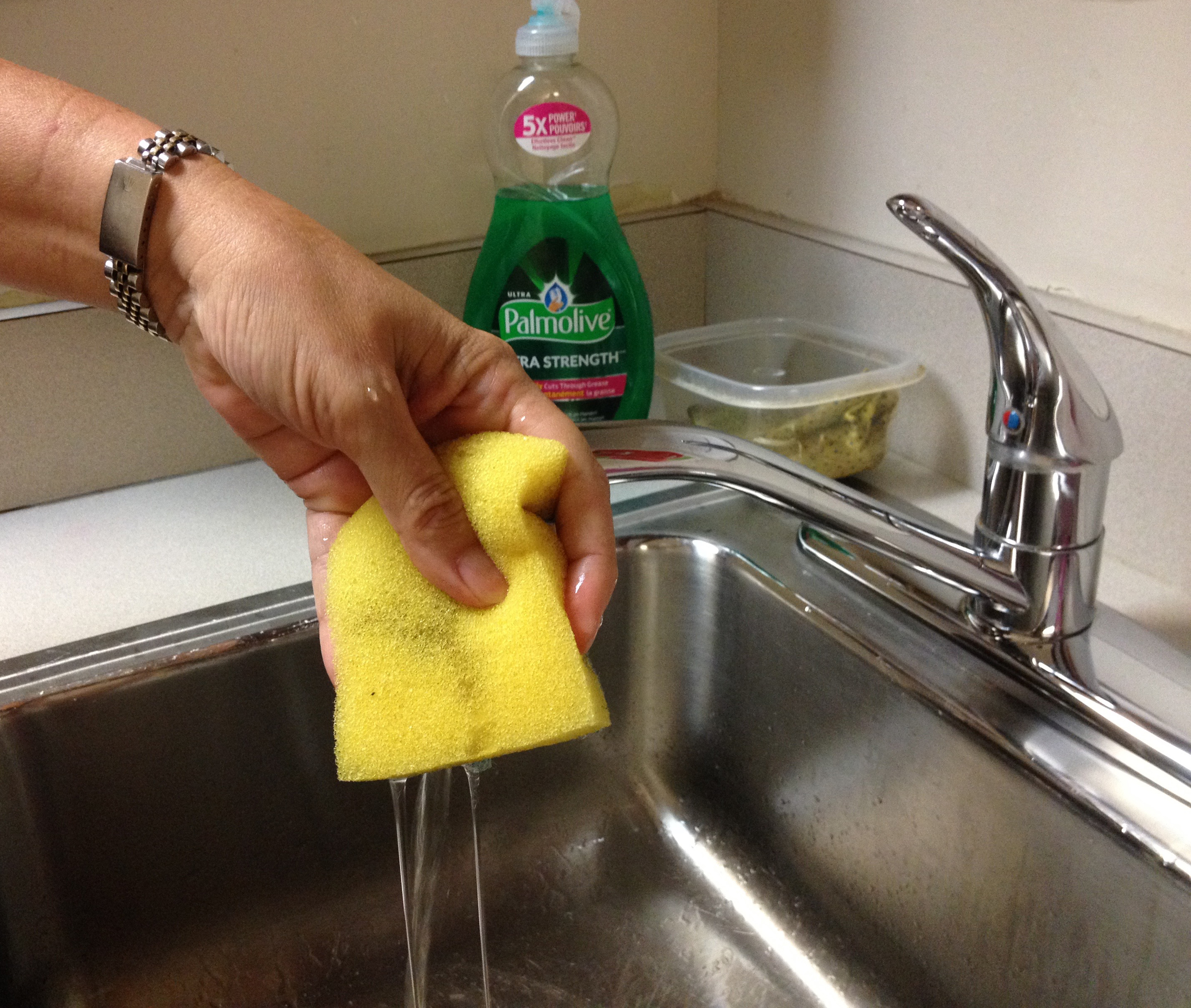Kitchen shortcuts may open door to foodborne illness
Sept. 1, 2017
By Emily Thompson
U of A System Division of Agriculture
Fast Facts:
- Cutting corners in food preparation, storage and kitchen clean up may spread foodborne illness.
- Always cook, store food at the right temperature.
- Sanitize sponges after every use, replace frequently.
(402 words)
(Newsrooms: with illustration www.flickr.com/photos/uacescomm/36819760261)
Download Word version
LITTLE ROCK-- We all fall victim to it from time to time: taking the easy way out when it comes to everyday household chores. While you may save some time cutting corners, the consequences could be big, especially when it comes to the kitchen where it’s easy for foodborne illnesses to occur.

University of Arkansas System Division of Agriculture Cooperative Extension Service expert Angela Scott helps break down how bad these common kitchen mistakes truly are.
- Eating batter and dough containing raw eggs. Scott said eating raw dough or batter is never recommended, nor should raw or undercooked eggs be served to those more vulnerable to foodborne illnesses such as pre-school aged children, the elderly and those who have compromised immune systems. The U.S. Department of Agriculture also advises against consuming raw eggs because of the possibility that Salmonella may be present. The National Restaurant Association recommends that eggs dishes be cooked to 145 degrees Fahrenheit. Before cooking eggs, it’s also important that they are stored correctly. “Keep your cold food cold,” Scott said. “Eggs fall under that category. Shell eggs are porous, so we need to treat them carefully.”
- Not regularly cleaning your dish sponges. According to the Academy of Nutrition and Dietetics, sponges can absorb harmful foodborne pathogens. That can lead to cross-contamination. But regularly sanitizing your sponges can drastically reduce the chances of that happening. Scott advises sanitizing sponges in a bleach and water solution (one tablespoon per every gallon of water) after every use. Scott also using a dishwasher to sanitize sponges, or any other style of dish scrubber, can be very effective in preventing the spread of harmful pathogens. Place dish scrubbers on the top rack of the dishwasher. However, this doesn’t mean one sponge will last forever. “I always tell people to replace sponges frequently,” Scott said.
- Eating food past expiration date. According to the USDA there are no universal standards for the dates manufacturers place on food products. These dates, often either “Sell-By” or “Use By,” are the manufacturer’s estimate of when a product will be at its peak and tells stores how long to keep it on the shelves. The USDA says that if food is stored properly at the correct temperature, it should still be safe until it exhibits signs of spoiling. However, they do provide some general guidelines about how long different foods stay good that can be found by visiting, https://www.foodsafety.gov/keep/charts/storagetimes.html.
For more information about food safety, visit, https://www.uaex.uada.edu/life-skills-wellness/food-safety/ and http://www.fightbac.org.
About the Division of Agriculture
The University of Arkansas System Division of Agriculture’s mission is to strengthen
agriculture, communities, and families by connecting trusted research to the adoption
of best practices. Through the Agricultural Experiment Station and the Cooperative
Extension Service, the Division of Agriculture conducts research and extension work
within the nation’s historic land grant education system.
Pursuant to 7 CFR § 15.3, the University of Arkansas System Division of Agriculture offers all its Extension and Research programs and services (including employment) without regard to race, color, sex, national origin, religion, age, disability, marital or veteran status, genetic information, sexual preference, pregnancy or any other legally protected status, and is an equal opportunity institution.
# # #
Media Contact: Mary Hightower
Dir. of Communication Services
U of A System Division of Agriculture
(501) 671-2126
mhightower@uada.edu
Related Links